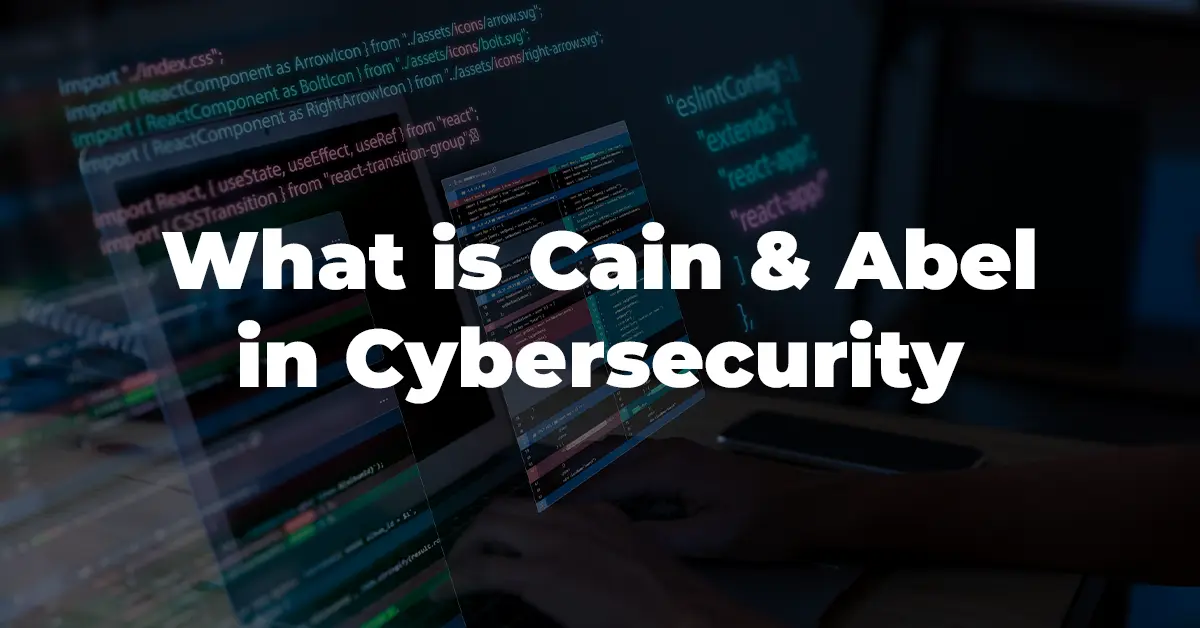In today’s digital-first world, cybersecurity is no longer an optional department it’s a frontline defense against a rising tide of cyber threats. High-profile breaches, ransomware attacks, and data leaks have made headlines across global media, placing immense pressure on businesses and governments to fortify their digital infrastructure. From healthcare systems being targeted by ransomware to multinational corporations leaking millions of user records, the scale and sophistication of these incidents are growing rapidly.
This increasing exposure has highlighted a significant global talent gap. Organizations struggle to fill cybersecurity positions fast enough, leading to soaring demand and career opportunities for those with the right skills. As digital transformation accelerates, cybersecurity has emerged as one of the most stable and lucrative fields in the tech industry. This article explores whether cybersecurity is truly a good long-term career by breaking down the benefits, earning potential, industry challenges, skill requirements, and future outlook for professionals entering or transitioning into this space.
Understanding the Cybersecurity Industry
What Is Cybersecurity?
Cybersecurity refers to the practice of protecting computer systems, networks, software, and data from unauthorized access, disruption, or theft. At its core, it involves building digital defenses that ensure the confidentiality, integrity, and availability of information. While this may sound technical, cybersecurity touches nearly every aspect of modern life from keeping your banking data secure to protecting sensitive patient records in a hospital.
Its relevance spans across sectors including finance, healthcare, e-commerce, government, and critical infrastructure, where any compromise in security could lead to severe consequences. Whether it’s shielding a small business from phishing scams or defending a national database from state-sponsored attacks, cybersecurity professionals play a critical role in keeping digital ecosystems safe.
Market Growth and Industry Trends (2025 Outlook)
The cybersecurity industry in 2025 continues to experience exponential growth, driven by the surge in cybercrime, evolving technology landscapes, and global regulatory mandates. According to multiple industry reports, there are over 3.5 million unfilled cybersecurity roles worldwide, with demand expected to grow well into the next decade. Organizations are now allocating larger portions of their IT budgets specifically for cybersecurity personnel, tools, and training programs.
Trends like AI-powered attacks, cloud security challenges, and IoT device vulnerabilities are pushing the boundaries of traditional security models. Additionally, the widespread adoption of remote work has introduced new risks that require skilled professionals to manage endpoints, VPNs, and distributed access securely. Compliance standards such as GDPR, HIPAA, and ISO 27001 are also placing legal obligations on companies to maintain robust security postures. All of this points to one conclusion: cybersecurity is not only growing it is evolving faster than most industries, creating a future-proof career landscape for those willing to adapt and specialize.
Is Cybersecurity a Good Career? Key Factors to Consider
High Demand and Job Security
Cybersecurity professionals are in demand across virtually every industry, from banking and healthcare to manufacturing, e-commerce, and government. As digital transformation expands, so does the attack surface and companies are racing to hire qualified individuals to protect their systems and data. This demand is not a short-term trend; it reflects a long-term shift in how businesses view operational risk and compliance. With cyberattacks becoming more complex and persistent, job security in cybersecurity remains among the highest in the tech sector. Professionals who develop in-demand skills in areas like cloud security, threat detection, or compliance can expect stable, long-term career opportunities well into the future.
Strong Earning Potential
One of the most attractive aspects of a cybersecurity career is the competitive compensation across all experience levels. Entry-level roles such as Security Analysts or IT Security Specialists typically offer starting salaries ranging from $60,000 to $80,000 in the U.S., depending on location and skill set. As professionals advance into specialized positions like Penetration Testers, Incident Responders, or Cloud Security Engineers, salaries often exceed $100,000. Executive roles such as Chief Information Security Officer (CISO) can command well over $200,000, particularly in high-risk or heavily regulated industries. With demand outpacing supply, the salary ceiling continues to rise making cybersecurity a financially rewarding field.
Continuous Learning and Skill Development
Cybersecurity is a fast-paced domain that constantly evolves in response to new technologies and emerging threats. Professionals in this field must stay current with security trends, tools, and best practices to remain effective. This environment is ideal for individuals who enjoy problem-solving, adapting to change, and acquiring new knowledge. Certifications such as CompTIA Security+, CISSP, CEH, and OSCP are common milestones that signal proficiency and often lead to promotions or higher-paying roles. Practical skills are just as important—hands-on labs, virtual environments like TryHackMe or Hack The Box, and open-source tools allow professionals to refine their capabilities and stand out in a competitive job market.
Career Flexibility and Specializations
The cybersecurity field offers a broad spectrum of career paths, allowing individuals to specialize based on their strengths and interests. Those who prefer defensive roles may gravitate toward blue team operations, including monitoring, detection, and response. Others interested in offensive tactics may pursue red team positions focused on penetration testing and ethical hacking. Non-technical professionals may find fulfilling roles in compliance, risk management, or governance (GRC). There are also highly specialized domains like digital forensics, malware analysis, and cloud security architecture. This diversity gives professionals the ability to pivot across roles throughout their careers without leaving the industry.
Global Opportunities and Remote Work
Cybersecurity has become a global profession, with roles available across all continents and a growing acceptance of fully remote positions. The shift to cloud infrastructure and distributed work environments has made remote cybersecurity work both feasible and necessary. Certifications like CISM, CISSP, or ISO 27001 Lead Auditor are recognized internationally, enabling professionals to work across borders without needing to requalify. Companies are increasingly hiring talent regardless of location, offering flexible work arrangements and international project exposure. This global openness not only broadens job prospects but also enables professionals to tap into high-paying markets and diverse work cultures from anywhere in the world.
Who Should Consider a Career in Cybersecurity?
Students and Tech Enthusiasts
Students pursuing degrees in computer science, information technology, or engineering are well-positioned to explore careers in cybersecurity from an early stage. As the digital landscape grows more complex, colleges and universities are integrating cybersecurity courses into their core curricula, providing foundational exposure to topics like network security, ethical hacking, and cryptography. Engaging in internships, Capture The Flag (CTF) competitions, or student cybersecurity clubs can significantly boost practical experience and networking opportunities. Entry-level certifications such as CompTIA Security+, Cisco CyberOps Associate, or Certified Ethical Hacker (CEH) serve as excellent stepping stones for young professionals looking to establish credibility and skill in the field.
Career Switchers from IT or Non-Tech Backgrounds
Professionals already working in related IT roles such as network administration, system engineering, or software development often find cybersecurity to be a natural progression. These roles provide a solid technical foundation that transfers well into defensive or offensive security work. Transitioning can lead to higher compensation, more strategic responsibilities, and broader impact within an organization. Importantly, cybersecurity also welcomes individuals from non-technical backgrounds, especially in areas like compliance, legal risk, policy development, and audit readiness. Roles in GRC (Governance, Risk, and Compliance), cyber law, and data privacy require analytical thinking, attention to detail, and domain-specific knowledge, making the field accessible to those outside traditional tech paths.
Challenges in a Cybersecurity Career
Fast-Paced and High-Stress Environment
Cybersecurity is an inherently high-pressure field that demands quick decision-making and constant readiness. Security incidents—such as breaches or malware outbreaks—can occur without warning, often requiring professionals to work outside regular hours to contain and resolve the issue. Incident response teams, in particular, may face unpredictable workloads and tight deadlines during critical events. Over time, this constant vigilance can lead to burnout, especially when compounded by the emotional weight of preventing major data losses or reputational damage. Maintaining mental health and work-life balance becomes a crucial, ongoing effort for those working in cybersecurity operations.
Constant Need for Upskilling
The cybersecurity landscape evolves rapidly, with new attack techniques, zero-day vulnerabilities, and emerging technologies challenging professionals to stay updated. What is considered a best practice today may be obsolete tomorrow. As a result, the field demands lifelong learning—whether through certifications, lab simulations, vendor training, or hands-on testing in virtual environments. For those who enjoy learning and adapting to change, this is an advantage. However, individuals seeking predictable tasks or a static workflow may find the pace overwhelming. Success in cybersecurity depends on a willingness to evolve, experiment, and continually sharpen one’s skillset.
How to Start a Career in Cybersecurity
Learning Pathways for Beginners
For those new to the field, entering cybersecurity can seem intimidating but the learning pathways are more accessible than ever. Aspiring professionals can choose from a variety of entry points, including self-paced online courses, coding bootcamps, or formal cybersecurity degree programs offered by universities and community colleges. Online platforms such as TryHackMe, Cybrary, and Hack The Box provide interactive, gamified environments to learn practical skills through real-world scenarios. For learners who prefer structure and certification, foundational courses from CompTIA, such as IT Fundamentals (ITF+) and Security+, offer a strong start without requiring prior experience. Whether through paid programs or free resources, consistent hands-on learning is key to progressing in this field.
Must-Have Skills and Certifications
Success in cybersecurity depends on building a blend of technical, analytical, and problem-solving skills. A foundational understanding of networking concepts, such as IP addressing, ports, and protocols, is critical for identifying and mitigating security threats. Familiarity with Linux operating systems, scripting languages like Python or Bash, and basic threat analysis techniques also provide a competitive edge. As for certifications, beginners typically start with CompTIA Security+, which validates core knowledge of system and network security. More advanced learners may pursue Certified Ethical Hacker (CEH) for penetration testing or Offensive Security Certified Professional (OSCP) for hands-on ethical hacking proficiency. Those aiming for management or enterprise roles may benefit from CISSP or CISM, which focus on strategic oversight and risk management.
Building Experience Through Labs and Projects
Practical experience is one of the most important assets for launching a cybersecurity career. Setting up a home lab using virtual machines, firewalls, and open-source tools allows beginners to safely experiment with common attack and defense techniques. Participating in Capture the Flag (CTF) competitions offers real-time problem-solving experience in a team-based format, often mirroring tasks found in professional security operations. Volunteering to help small businesses, nonprofits, or student organizations with basic security assessments or awareness training can also provide real-world exposure. Demonstrating skills through personal projects, GitHub repositories, or public write-ups helps establish credibility and showcases initiative—qualities highly valued by employers in the cybersecurity industry.
Cybersecurity Career Outlook Beyond 2025
Impact of AI and Emerging Technologies
The cybersecurity landscape is undergoing a transformation as emerging technologies redefine both the nature of threats and the tools used to defend against them. Artificial intelligence (AI) and machine learning (ML) are being integrated into threat detection systems to automate anomaly detection, triage alerts, and predict attacks before they occur. At the same time, cybercriminals are leveraging AI to craft more sophisticated phishing scams and evade traditional security defenses. The rise of quantum computing presents a looming challenge to modern encryption, prompting the development of post-quantum cryptography as a critical subfield. Additionally, blockchain is driving innovation in decentralized identity and secure transaction models. These developments are giving rise to new job roles, such as AI Threat Analyst, Quantum Cryptography Specialist, and Blockchain Security Consultant, which will shape the future of cybersecurity careers.
Industry Growth Projections and Job Stability
The global cybersecurity workforce shortage is expected to persist well beyond 2025, with demand for skilled professionals consistently outpacing supply. Governments are investing heavily in national cybersecurity infrastructure, particularly in response to rising geopolitical tensions and state-sponsored attacks. In the private sector, organizations are allocating larger portions of their budgets toward cybersecurity tools, staff, and training, driven by increasing regulatory requirements and the cost of data breaches. According to industry reports, the global cybersecurity market is projected to surpass $500 billion by the early 2030s, underlining long-term job stability and expansion. Whether in technical, compliance, or leadership roles, cybersecurity professionals will continue to be indispensable assets across industries.
Conclusion – Is Cybersecurity the Right Path for You?
Cybersecurity stands out as one of the most promising and impactful career paths in today’s digital economy. It offers high earning potential, consistent job security, intellectually engaging work, and the opportunity to protect individuals, organizations, and even nations from real-world harm. The diversity of roles ranging from hands-on technical work to policy and governance means there’s a place for professionals with different strengths and interests. At the same time, it’s important to recognize the field’s challenges: the pace is fast, the stakes are high, and the learning never stops.
Choosing cybersecurity as a career means committing to continuous growth, staying curious, and embracing a dynamic environment. If you’re someone who enjoys solving problems, adapting to change, and contributing to a greater purpose, then cybersecurity may be not just a good career, it could be the right one for you.






